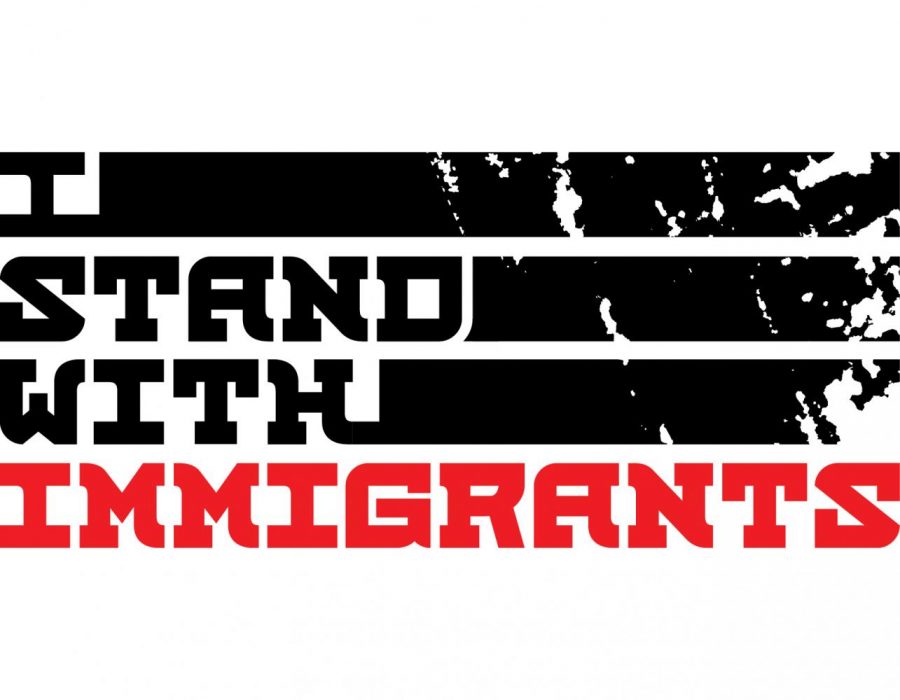Guest column highlights immigrant’s contribution
Oliverio Covarrubias, member of Lambda Theta Phi Latin Fraternity, Inc., pens a guest column about the positive impact immigrants have made on the United States.
Oct 9, 2017
Editor’s note: The following is a guest column submitted by Oliverio Covarrubias, a member of the UNI chapter of Lambda Theta Phi Latin Fraternity, Inc.
Why does talking about immigrants matter? That’s the wrong question to ask.
Why not talk about immigrants in a society so uniquely crafted from a variety of sources? Before we continue, however, I need to clear the air in regards to a few claims touted when discussing the importance of immigrants.
First, while the majority of the U.S. is descended from immigrants, we must not erase the legacy of slavery or the systematic destruction of the various indigenous nations who were native before the influx of European populations. The claim that “everyone is an immigrant” is ahistorical and ignores the struggles of the previously mentioned populations.
Additionally, while I do love hearing the success stories of immigrants and the children of immigrants alike, we must be cognizant to recognize that the value of their humanity does not lie in their success. Immigrants and those of immigrant descent who do not start a business or who don’t get a 4.0, despite whatever hardship, still deserve to be treated as humans.
Surviving in the modern era is tough. Additionally, while immigrants as a group happen to have similar characteristics, it is important to not simplify all immigrants as having the same experience. Undocumented immigrants (undocumented, not illegal) definitely had a different experience from my parents, and between them there’s no guaranteed constant other than that they don’t have documentation.
More on that later.
Above all, the thing that connects us all — whether it be recent immigrants or those who’ve been settled for generations in this country — is our shared humanity and our common goal to serve our communities in a constructive manner.
I see the many successes of immigrants and their descendants. Having been a student here for three, going on four, years, the way the immigrant-centric communities have developed and grown in the last couple of years has really impressed me. Never would I have dreamed in my time here that we would have a Hispanic Heritage Week.
For that, I must recognize all the leaders of the Latinx organizations on campus but especially Amayranis Sharline Berry for her hard work in bringing it all together.
The African Union’s event “We Are Africa,” which showcases the many cultures of Africa, is a welcome display of color and pattern in the outfits worn and represented.
I never would have expected to see a Latin Fraternity emerge and accept me into their brotherhood.
Northern Iowa Student Government was overwhelmingly white. While it is not yet a fully representative picture of the diversity on our campus, this is beginning to change and thus the issues being discussed have been more representative of our campus as a whole.
I’d also like to address the naysayers and the diehard culture warriors keen on the defense of apple pie, religion and whatever my existence seems to be threatening.
Civilization changes. As much as we want to pretend that history is immobile like a painting or a statue, we have to recognize that things can and will change. The tide ebbs and flows. People have always moved from one place to another in search of better opportunity.
For every group of people that attempts to move, there’s always another making it hard, ironically forgetting their forefathers were once in the same position. Not only does the assumption of a static, unchanging culture ignore that, but it casts aside the many changes brought here or aided by immigration.
Everything from apple pie to pizza to pasta to anime to churros to taco trucks to iPhones, Samsung and many other modern amenities are taken for granted. They all come from countries other than the U.S.
Pointedly demarcating where “real America” stops and “those darn immigrants” begins is just a flawed, facetious attempt to move the goalposts. In the end, it’s not the rhetoric that matters.
These arbitrary designations, the dog whistles behind the rhetoric, intentionally forget our shared humanity — to what end? Trying to stop this is like trying to sweep away the sea.
In the end, the labels help us. They help us understand that our stories are different. We shouldn’t use our differences as a reason to isolate and alienate others. The more time we spend fighting over who is and isn’t a good representation of us, the less time we spend actually representing ourselves as Americans.
I say us — knowingly including white supremacists, nationalists, separatists and any other who would want to see people like my community and other communities fail — because at the end of the day we all contribute to these United States.
We as immigrants, as children of immigrants, are working hard to improve not only ourselves but the country as a whole. What have you done?







